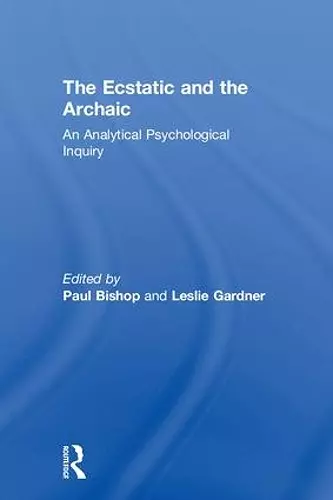The Ecstatic and the Archaic
An Analytical Psychological Inquiry
Paul Bishop editor Leslie Gardner editor
Format:Hardback
Publisher:Taylor & Francis Ltd
Published:20th Mar '18
Currently unavailable, and unfortunately no date known when it will be back
This hardback is available in another edition too:
- Paperback£31.99(9781138300545)

The word ‘archaic’ derives from the Greek arkhaios, which in turn is related to the word archē, meaning ‘principle’, ‘origin’, or ‘cause’; the notion of ecstasy, or ekstasis,implies standing outside or beyond oneself, a self-transcendence. How these two concepts are articulated and co-implicated constitutes the core question underlying this edited collection, which examines both the present day and antiquity in order to trace the insistent presence of the ecstatic amid the archaic.
Presented in three parts, the contributors to this diverse book take the concept of the archaic in an entirely new direction. Part I, 'Ecstasy and the psychological', covers topics including Jung, Freud, ancient psychotherapy, desire, and theatre. Part II, 'Ecstatic-archaic history', considers Ludwig Klages, Orestes and Dionysus. Finally, Part III, 'Ancient ecstatic in other worlds', examines Luo Guanzhong’s Three Kingdoms and Enki at Eridu. The collection offers a distinctive contextualisation of the dimension of the archaic in relation to the ecstatic experience.
The Ecstatic and the Archaic will appeal to readers interested in the relationship between ancient and postmodern worlds, and in how the past manifests itself in the present. It will be of great interest to academics and students of Jungian and post-Jungian ideas, classical religions and the history of ideas, as well as practitioners of analytical psychology and psychoanalysis.
"This accomplished collection of mind-opening essays explores the notion of ecstasy as it manifests in the archaic, that is, a primordial state of total immersion in the world […] A living sense of the persistence of the archaic in the present [is] evocatively argued by this book." - British Journal of Psychotherapy 35, 2 (2019)
ISBN: 9781138300538
Dimensions: unknown
Weight: 385g
166 pages